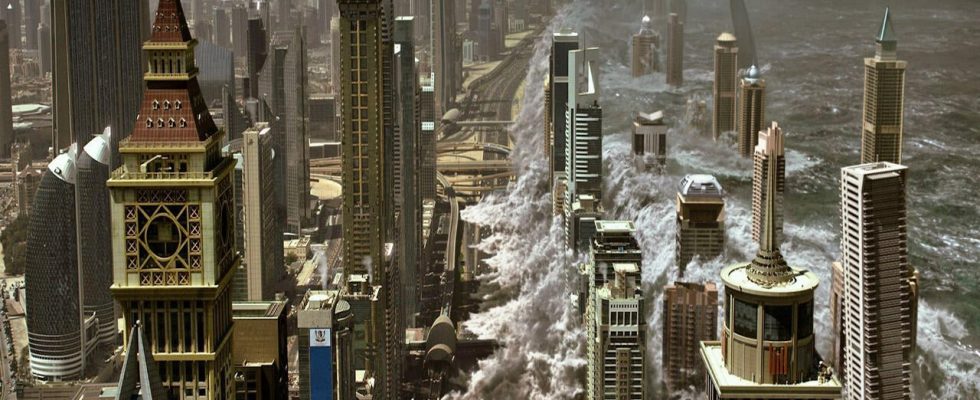Geostorm doesn’t have it easy: half a dozen start delays, reshoots and, according to the deadline, the first draft was made “not to look at”. Many say the same about the final film. If I were you, I’d watch Independence Day co-writer Dean Devlin’s 109 minutes of mindless sci-fi action on Netflix still not to be missed.
Gerard Butler plays the satellite technician Jack Lawson with absolute passion and the action scenes in space (!) are not to be scoffed at. Given Geostorm’s devotion to ignoring current science, the weather horror film is even more entertaining than it already was.
Sci-fi fun on Netflix: In Geostorm, weather satellites are going crazy and that’s complete nonsense
Anyone who pays attention to the scientific accuracy of disaster films will rarely be happy with the genre. Entertaining and unscientific also go hand in hand in Geostorm. In Geostorm from 2017 can weather can be controlled using a global network of satellites. Governments of numerous countries have joined forces to take action against climate change.
Of course, as always happens when mankind relies too much on their technology in sci-fi movies, things go wrong. The satellites are spinning and the earth is flooded by tsunamis, tornadoes hit and a village in Afghanistan is flash-frozen along with the people. Gerard Butler must go into space to bring technology under control and prevent a global superstorm.
Warner Bros.
Gerard Butler and Alexandra Maria Lara in Geostorm
When asked about the realism of it all, there is a clear answer from a Harvard astrophysicist. Jonathan McDowell told entertainment magazine Inverse:
This particular idea
– and feel free to quote me – is garbage.
be it simply not possible to change the weather with a satellite, as it happens in Geostorm. Neither for good nor for bad. According to McDowell, our current capacities are for energy storage several trillion times too small for the idea of the film.
Science Fiction vs. Reality: Clouds can actually be manipulated, but geostorms don’t exist
There really is a real possibility of (slightly) influencing the weather. However, it works completely differently and is called cloud seeding, also called cloud seeding in German. Certain substances are distributed in clouds by airplanes or rockets, “to force them to rain down”is explained in the science magazine Spektrum.
Warner Bros.
geostorm
Jonathan Winter of Dartmouth College’s Department of Geography studies weather forecasting and changes. He explains that it makes a lot more sense to continue exploring cloud seeding than messing around with satellites.
Incidentally, the concept of a geostorm is also rubbish, writes scientist Robin Andrews in a featured user post on Forbes. Even the title of the film promises nonsense entertainment:
There are no geostorms.
There would be though “geomagnetic storms”, writes Andrews. However, these would not cause huge hailstones or tornado outbreaks like in the film, but in the worst case a power shortage.
You can do both the disaster film Geostorm and all its crazy fantasies at Netflix as well as with WOW in the film subscription *. You can safely switch off your head for this.
Podcast tip: 15 science fiction series on Netflix & Co. that we’re still looking forward to this year
In our podcast stream flurry my colleagues Max Wieseler and Matthias Hopf take a close look at 15 highlights that will start this year.
At this point you will find external content that complements the article. You can show it and hide it again with one click.
Chaotic time travel, survival struggles on the edge of the universe, gripping alien conspiracies on earth or dystopian societies in the post-apocalypse: the sci-fi series starting in 2023 show how diverse the genre can be.
*The links to the Amazon offer are so-called affiliate links. If you make a purchase through these links, we will receive a commission.
